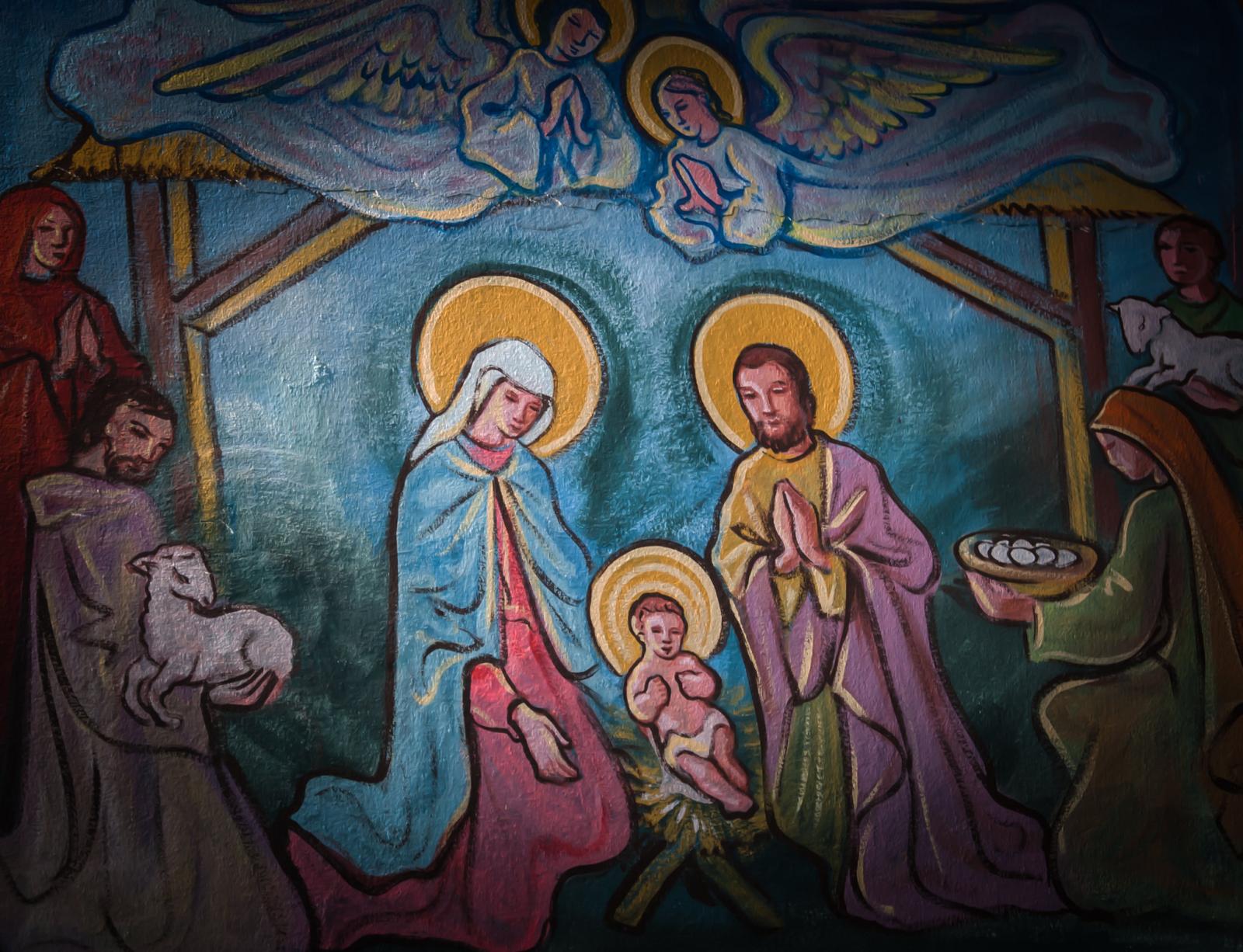By Deacon Roger Carr-Jones, Marriage and Family Life Coordinator
The great benefit of making a journey is that it can provide a much-needed space for reflection and thought. Although we can prepare for a journey, get the right tickets, guide books and read the literature, it is only in setting off that the journey becomes real. Reading about a journey from our armchair is one thing, but the journey of faith requires active participation and openness to surprises along the way. Perhaps you can recall moments of encounter on even the most mundane train journey, where someone has shared aspects of their life story, but not their name. Or, suddenly finding yourself adapting to a set of new and unexpected needs that were not part of the tour. The life of the disciple is, as we discover, dynamic not static.
Each year we are invited to accompany the Holy Family to Bethlehem and we do so as friends, who chat along the way. At first the conversation might be conventional and circumspect, but once we overcome our reticence, what conversations would we like to have with Mary and Joseph? Have we, like them, experienced moments when we had to leave behind what was known and comfortable? Imagine what it is like for migrants who have left all, to seek a safer and new life? What would their conversations with Mary and Joseph be like? Remember that they too are invited to share the journey of the Holy Family.
Change is part of the pilgrims’ journey as new landscapes open before us, which in turn reshape the landscape of our life. From experience no journey, however familiar, is ever quite the same, as both we and the landscape will always be different. In a similar way our trip to meet the Christ-child in Bethlehem, whilst familiar, is always fresh, new and invigorating. We bring with us the realities of our life: who we are, what we feel, and what we need. Our life experiences provide complexity and depth to the scenery of our personal journey.
As we accompany the Holy Family this year, have we found some space for prayer and conversation to reflect on life, leaving in the wilderness what is no longer necessary? One essential aspects of this annual pilgrimage is to admit to the inner poverty and emptiness of our lives without God. Then in the light of the glow of Jesus lying in the manger, we are bathed in the light of how God sees us and who God is revealing Himself to be for us. The Christ-child is always happy to see us, enthralled by what we need to share, and in love transforms our life, filling us with joy.
When we walk with the Holy Family, we are experiencing a special repetition, which is not sameness. In the Ignatian tradition this term ‘repetition’ is a return to a previous period of prayer, allowing the movements of God to deepen in our hearts. Each year we retread the path to Bethlehem in a deeper and more nuanced way, fed by prayer. We are fine-tuning our sensitivity to how God speaks to us in that prayer and through our lives.
Travellers often keep a journal so that they can record their impressions and then at a later stage edit them, noticing insights and patterns that were overlooked at the time. In the same way using a spiritual journal allows us to record what we have noticed or experienced, later on reflecting upon it once again in prayer. God has a pattern of communicating with each of us, so each journal is truly unique.
In addition to the scriptures, what other books or guides have helped you on the journey to greet Jesus once again at the manger? Do we have a favourite that we return to each year and in which we discover new insights and surprises? Quite often though it is the simplest words, rather than the erudite works, that will become the focus for our prayer and journey. As we sit with Mary and Joseph, what will we ask, what will we share? Then as we gather the Christ-child into our arms the words fall away and we can rest in love, wonder and awe.
For me, this sense of being with Jesus has been encapsulated in the verses of a well-known Christmas poem: ‘If you look for Me at Christmas’, which I was first introduced to it by the Jesuit, Tony Horan. He recited it with such gusto that, in the year that he returned home to God, it has grown into my personal prayer for this Advent journey.

Although we will set off to greet Jesus on Christmas morning, the reality is that it is actually Jesus who is always walking towards us. In the quiet, we will find Him waiting for us among the distractions and preparations for Christmas. Just invite Him to sit with you at the table, to share in the festivities and to notice Him.
The words I would therefore like to share with you this year are those of the final stanza: ‘You’re the one I want to be with, you’re the reason that I came and you’ll find Me in the stillness, as I’m whispering your name’.




